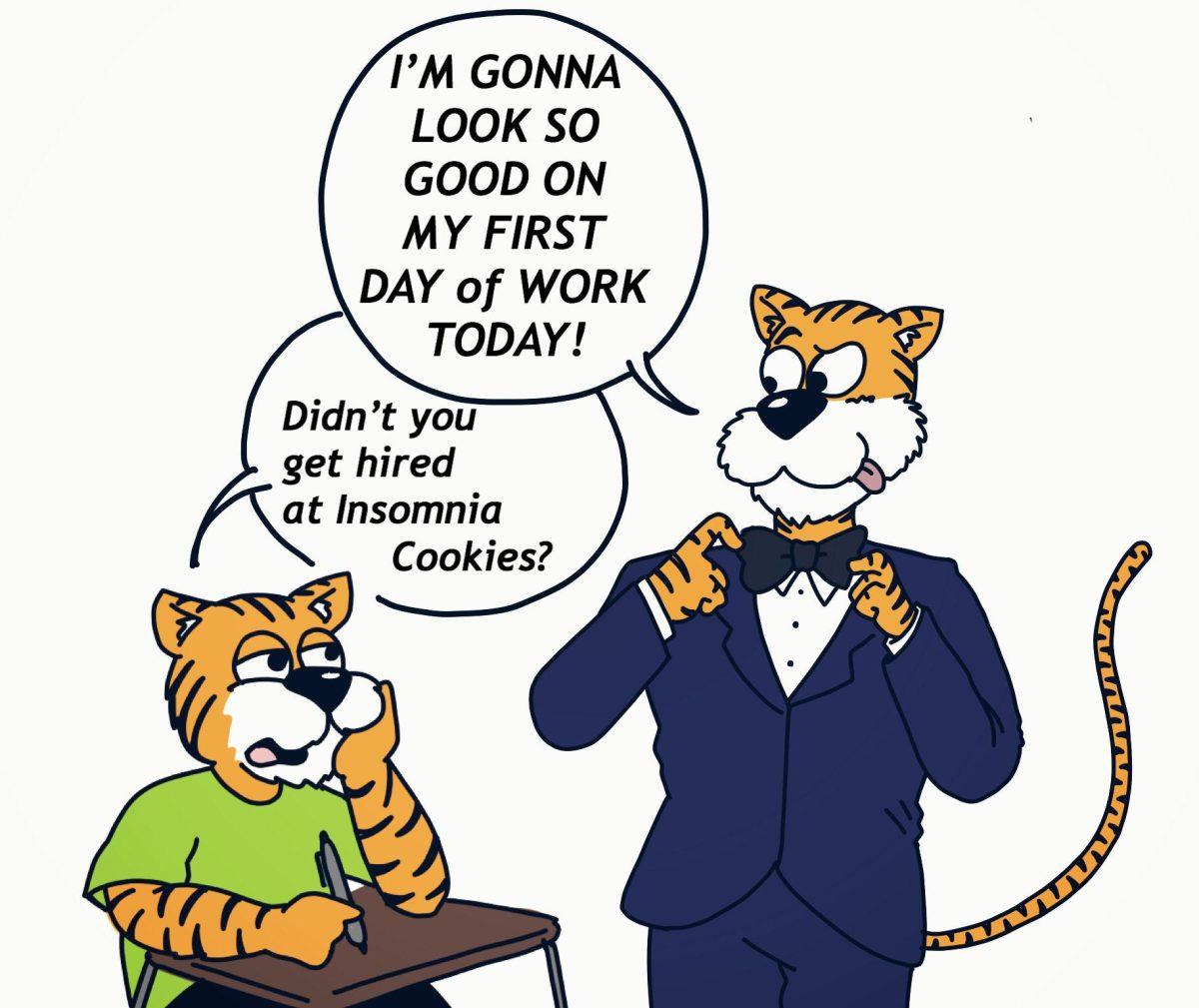The workplace status quo needs a makeover.
Career choice has long been a determining factor in people’s right to self-expression. From tattoos to piercings to unnaturally colored hair, markers of individualism are often stifled by made-up rules written far too long ago by the 1% who employ us.
This system is outdated to the point that it has redefined the public’s perception of things like body modification and certain hairstyles. In the workplace, a tattoo or facial piercing is seen as “trashy” rather than as a piece of important body history or cultural expression. These things now get the general bad rap of being unprofessional.
In a perfect world, we wouldn’t judge people based on appearance — but we do. The best way to work towards changing this is by starting with workplace standards. A potential employee shouldn’t be deferred just because they have pink or green hair; instead, the hiring process should be based on their qualities as a person and a worker. Made-up professionalism shouldn’t trump self-expression.
Too often we see ethnic hairstyles such as dreadlocks and afros deemed “unprofessional” in academic and professional settings. This type of casual racism is not only damaging for those being punished for their natural hairstyles but also threatens the self-image of others with similar styles, particularly those of young children who lack proper representation.
Teenagers and young adults are told they must monitor their online presence in addition to physical appearance so as not to dampen their future career opportunities. We’re told to not get too political, controversial or opinionated on social media just because some HR employee might find it down the road and use it against us.
With the advent of OnlyFans, an online platform that allows independent creators to sell original NSFW content, it seems appropriate to discuss the distinction between a person’s online presence and their work persona. A person shouldn’t succumb to hiding their entire personality—or their body—just for the sake of maintaining a “professional” appearance; their life outside of work is their own.
Obviously, this excludes hate speech and dangerous posts on social media that would point to further investigations into the workplace, such as using threatening language or exhibiting any behavior which poses a potentially serious threat to the safety of coworkers and clients.
However, a woman posting a promiscuous picture online shouldn’t be cause for her getting fired from serving at a restaurant or even from her job as a mechanic. Capitalism shouldn’t stop someone from expressing themselves confidently and artistically.
As generations age, I’d expect to see more distinction within the tight regulations between personal and professional life. A worker’s personal life and decisions shouldn’t interfere with their job and vice versa.
Millennials and Gen Z’ers are going to be the ones to rewrite these racist, sexist workplace rules. No longer should someone’s expression of their identity determine their eligibility as an employee if it doesn’t directly pertain to their ability to work. Otherwise, we’ll soon lose our ability to express ourselves entirely.
Gabrielle Martinez is a 19-year-old mass communication sophomore from Gonzales.
Opinion: Make room for self-expression in the workplace
September 8, 2020
Workplace Appearance Cartoon





